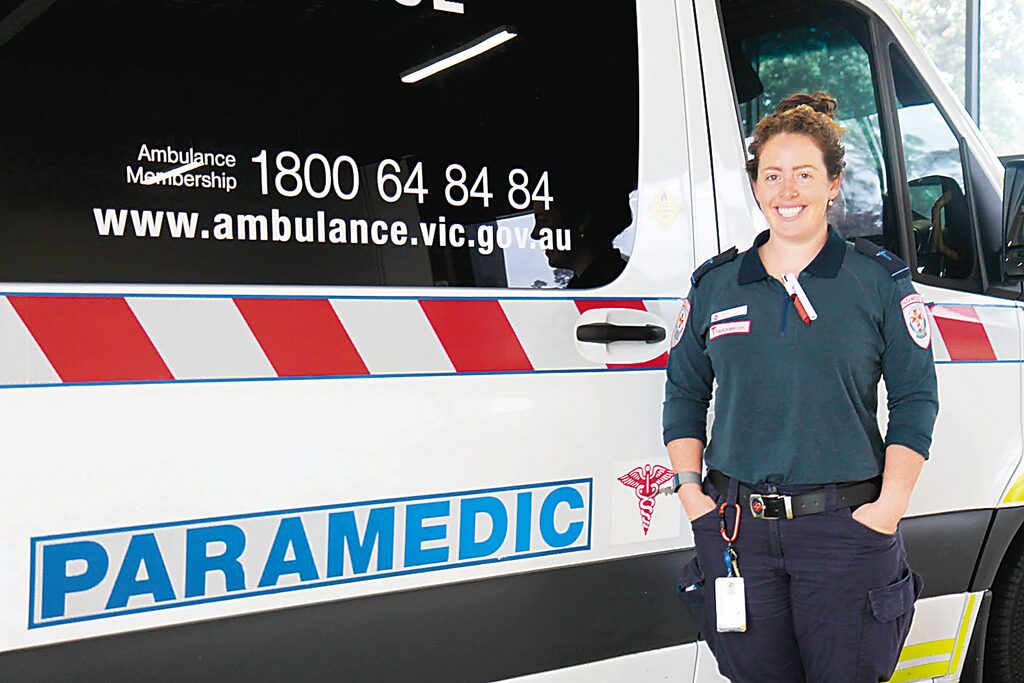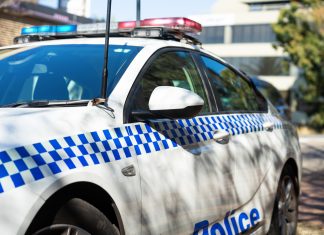By KATRINA BRANDON
WE all cherish the moment where we can get into our dream job, and Sophie Shippen is no exception.
Originally from Toongabbie, Ms Shippen is completing the Graduate Ambulance Paramedics (GAP) program out of the Traralgon branch.
Based all over the state, the Graduate Ambulance Paramedics undertake the 12-month GAP program that sees them become fully credentialed.
Ms Shippen is one of 178 graduates to have joined the program in 2023.
GAPs initially work under the supervision of clinical instructors to help with the transition from the classroom to the ‘real world’.
After completing the program, paramedics continue training for their entire careers. This continued professional development ensures Ambulance Victoria paramedics can provide the most up-to-date life-saving interventions and stay safe while they are doing so.
“You get the chance to go on placements as a paramedic, so you have a little idea of what you are up to, but it is very different when you are in the driver’s seat or the treating seat,” she said.
“It was a little bit of what I expected but also nothing that I expected it to be like. It’s a lot of ‘go, go, go’, and I have to concentrate all the time, not just when you are driving but when treating the patients for their illnesses.”
Ms Shippen has a nursing background and experience working in the Intensive Care Unit (ICU) and was curious about pre-hospital care.
“I have been in the hospital system for almost 10 years as a nurse, and it would be nice to see what pre-hospital care can provide. I jumped in feet first and enjoyed it.
“The hospital is a very controlled environment. I worked in the ICU, and the patient was in a bed. You control what you do, how and when you do it. Here, it is very unpredictable; you’re in the patient’s environment instead of yours. A lot can change quickly.”
Unpredictability is one of the many challenges a paramedic can face, according to Ms Shippen. She told the Latrobe Valley Express that the shifts are long as a paramedic and can be longer if you are on a job when your shift ends. Fatigue is also one of the other challenges, but Ms Shippen said that it benefits her more to keep pushing on.
In her downtime at the station, Ms Shippen said that as a graduate, there are many opportunities for the other paramedics to help her learn or refresh her skills. They even practise real-life scenarios in the case of hospital transport or exercising best judgement to predict when a job can be handled without hospitalisation (in those cases referring patients to the virtual Emergency Department or a GP).
“That kind of thing threw me. You never really learnt that in uni, there are other options than going straight to the Emergency Department,” Ms Shippen said.
“We learn how to assess a patient and diagnose what is happening, but in scenario land and university, all the patients we get as learning topics are sick, and we always transfer them to the hospital. Whereas some people don’t need to be taken to hospital.”
Ms Shippen said that the nursing degree has been immensely helpful as a paramedic as she has extra knowledge that can help in the field.
“Many people I have spoken to who have done the straight paramedic course would have enjoyed it if they had done nursing and paramedics because it opens up a few more avenues,” she said.
Ms Shippen told the Latrobe Valley Express that it had been an eye-opening experience and she had enjoyed it – aspects such as the respect people have for paramedics and the little things when going into homes.
“Getting a patient out of their environment, you only think about that crooked step once you try to get a bed with a patient on it down. You only think a house is cluttered once you try to get a bed, chair, equipment, or anything through a doorway. It opens your eyes to how we live, the way we live and just the simplest of things like a broken step at the front. You don’t think it is wrong until you try to do something heavy and hard over it,” she said.
“Going into the patient’s home, you forget it is a privilege to be asked into someone’s house. I think the uniform and arriving in an ambulance, everyone just so thankful to see you. It was a pleasant surprise.
“The driving is also fun. To drive safely at that speed with the lights and sirens, everybody pays attention to what is happening, and you don’t have too many people missing the lights and sirens.”
Ms Shippen said that she really enjoys the work and that those considering paramedicine should ‘go for it’.











